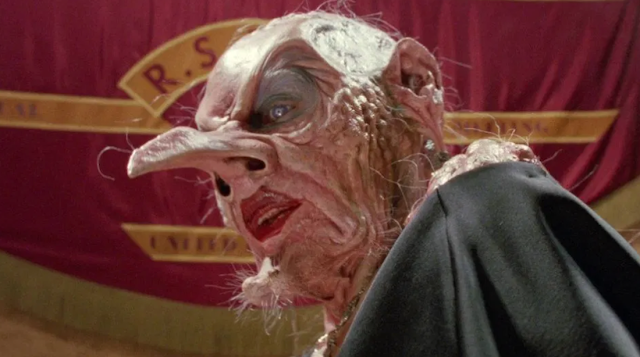 |
| Karen Carlson in The Student Nurses |
Cast: Elaine Giftos, Karen Carlson, Brioni Farrell, Barbara Leigh, Reni Santoni, Richard Rust, Lawrence P. Casey, Darrell Larson, Paul Camen, Richard Stahl, Katherine MacGregor, Pepe Serna, John Pearce, Mario Aniov, Ron Gans. Screenplay: Don Spencer, Stephanie Rothman, Charles S. Swartz. Cinematography: Stevan Larner. Art direction: David Nichols. Film editing: Stephen Judson. Music: Roger Dollarhide, Clancy B. Grass III.
Yes, the dialogue is clunky, the acting is amateurish, and the nudity is gratuitous, but The Student Nurses has a heart. That heart is Stephanie Rothman's. Working for the great quickie producer Roger Corman, she devised a story that would be exploitative enough for audiences wanting a little sex and yet give her the opportunity to deal with hot-button issues like drugs, abortion, and social protest. So she came up with a quartet of student nurses and devised situations in which they might encounter one or more of those issues, at the same time making a case for female independence and strength. True, they're nubile and somewhat randy women with no hesitation about taking off their tops, and the men they encounter are far from ideal. Phred (Karen Carlson) hooks up with a young OB/GYN named Jim (Lawrence P. Casey), Priscilla meets a drug-selling biker named Les (Richard Rust) at a love-in, Lynn (Brioni Farrell) falls for a Chicano activist, and Sharon (Elaine Giftos) befriends an embittered young man named Greg (Darrell Larson) who is dying of cystic fibrosis. If The Student Nurses had a real budget and some sharper dialogue and the four nurses had been played by actors like Jane Fonda, Natalie Wood, Katharine Ross, and Faye Dunaway, it might be remembered as a minor classic of its day.








.jpg)